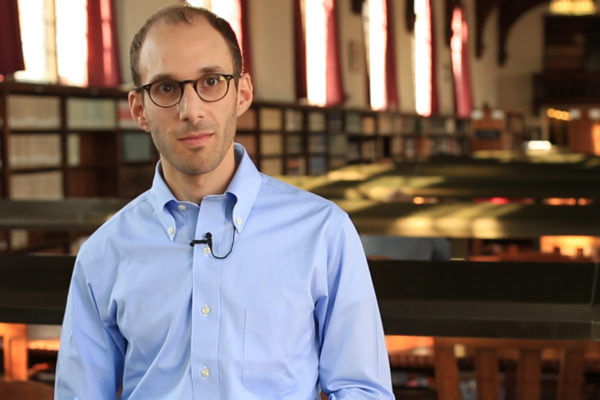Olin undergraduate program ranked No. 1 in national survey
Washington University in St. Louis’ Olin Business School took the top spot in a new ranking of U.S. undergraduate business programs unveiled Dec. 5.
The neediest case … or the prettiest face?
On Giving Tuesday, holiday donation campaigns launch into high gear. But how do people decide where to donate their money? They know that they should give to the neediest cases, but new research from Washington University in St. Louis’s Olin Business School shows often, the donation decision comes down to something called a “charity beauty premium.”
Creating better bar food
Chris Ferguson left the business world to venture into food. Now he’s the founder and owner of Bee’s Knees, providing gourmet bar snacks that pair well with craft beers.
Second major offered in financial engineering
A new, interdisciplinary academic program will combine courses in math, computer science, engineering and finance for Washington University in St. Louis students pursuing a career in financial engineering.
The wizardry of Harry Potter’s bank
Witches and wizards in the world created by J.K. Rowling have only one choice when it comes to banking. Gringotts Wizarding Bank is a monopoly for those living in the Potterverse. Zachary Feinstein, assistant professor of electrical and systems engineering in the School of Engineering & Applied Science at Washington University in St. Louis, explored the outcome of dividing up Gringotts Wizarding Bank using the latest financial mathematics research.
Epharmix wins $50,000 in the 2016 Global Impact Award
Epharmix, a health-care software startup created at Washington University in St. Louis, will receive $50,000 in equity-free funding as the 2016 winner of the Global Impact Award.
Election 2016 from Washington University’s view
At a transformative moment in our nation’s history, when America’s “Brexit vote” came to pass, where better than Washington University to bring together the thought leaders and experts from disparate fields covering the littered landscape that was, is and forever will be Election 2016?
WashU Expert: It’s all in the brand
Effective campaign branding may have made the winning difference for Donald Trump in this year’s presidential election. Raphael Thomadsen, associate professor of marketing at Olin Business School takes a closer look at how the messaging may have affected the election outcome. The importance of branding: “Branding is a central concept in business. Companies build products […]
WashU Expert: ‘Long-lasting implications’ for U.S., global economies
Donald Trump’s election as president initially sent global markets reeling. What might we expect from the markets moving forward? John Horn, senior lecturer in economics at Olin Business School breaks it down. Economic Implications: “The election of Donald Trump will have long-lasting implications for the United States and global economy. The election will be significant economically […]
WashU Expert: Wins, losses in branding the presidential election
As presidential candidates Hillary Clinton and Donald Trump make their last-minute pushes for votes before tomorrow’s election, a faculty member at Washington University in St. Louis says the tight race boils down, in part, to poor branding practices.
Older Stories








